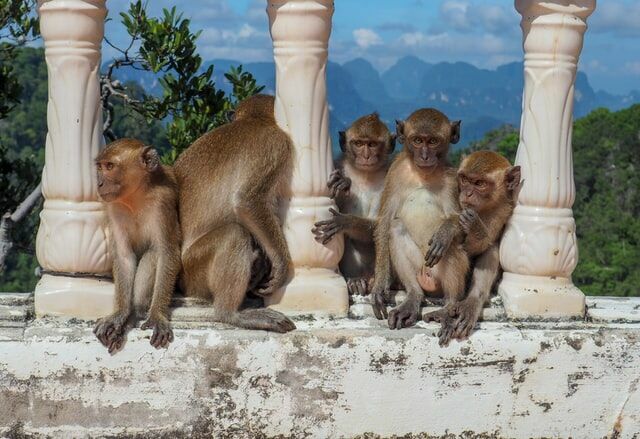Animal imports restricted until monkeypox measures implemented

The screening of wildlife imports has been made a priority in Thailand as cases of the monkeypox virus continues to increase throughout the world.
The National Parks, Wildlife and Plant Conservation Department today revealed they have introduced severe measures to closely monitor any wildlife entering the country in a bid to prevent monkeypox coming into Thailand. The government agency also added they would be keeping a close eye on the nation’s indigenous monkeys, which are potential carriers of the disease.
The DNP adopted the measures at an emergency meeting with a number of businesses dealing in the animal import-export industry, and officials from wildlife checkpoints at all of the kingdom’s airports.
Director of the CITES wild animals and plants protection division, Prasert Sornsathapornkul, says the meeting was a success and all those involved agreed to the stricter screening guidelines at airports.
The DNP revealed all imports of wild animals will be restricted until monkeypox-control measures are in place.
Thailand has a large population of indigenous monkeys that could act as carriers of the disease.
DNP Wildlife Health Management Division chief Pattarapol Maneeon revealed there had been no reports of monkeypox cases detected in Thailand, and the virus had been added to the list of diseases screened for in the DNP’s regular surveys of monkeys in Thailand.
Pattarapol highlighted the dangers of wildlife staff being infected by animal secretions and says all workers had been told to wear gloves and protective footwear during checks on monkeys.
He advised people to avoid contact with potential monkeypox carriers such as rodents and primates. Pattarapol added people should wash their hands with soap and clean water immediately after touching these animals and consult a doctor immediately if they develop symptoms such as fever, headache, muscle aches and rash.
The DNP is checking health histories of all animals imported from Africa over the past year.
Monkeypox is endemic in central and west Africa but has spread to more than 20 countries across the Americas, Europe, the Middle East and Asia this month.
Source The Nation
Latest Thailand News
Follow The Thaiger on Google News:


























